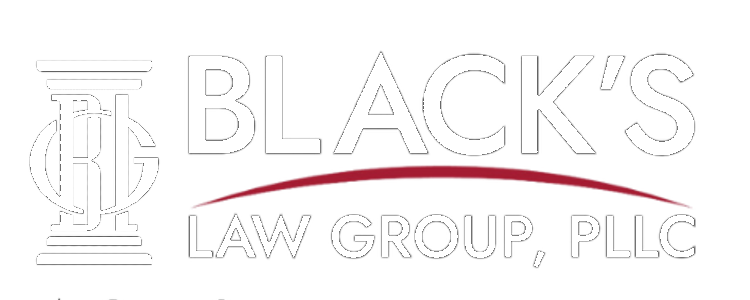Most people are familiar with the term domestic violence. In Connecticut, the formal phrase for these types of cases are “family violence” cases. They apply to any situation where family or household members are involved in allegations of criminal conduct. They are not a criminal charge itself. In other words, a prosecutor cannot charge you with “family violence.” Instead, it is a way to classify a type of criminal case.
For example, if Spouse A murders Spouse B, the charge would be murder, but it would be classified as a family violence case because of the relationships of the people involved.
Here’s another one. You can be charged with Assault for punching someone in the face at a bar. If that person is a random stranger? Not a family violence case. If it is your roommate or ex, then it would be classified as a family violence case.
If you or a loved one are being investigated or have already been arrested in a family violence case, you are likely scared, concerned, and overwhelmed. Call our experienced and dedicated attorneys at Black’s Law Group for an initial consultation where we can answer some of your likely many questions.
Until then, you can continue reading the rest of this post to learn about some of the basics about family violence cases.
What is a family or household member?
Importantly, this determines whether your case is a family violence crime. The term “family or household member” has a specific definition in Connecticut. A family or household member means any of the following persons, regardless of the age of such person:
- Spouses or former spouses
- Parents or their children
- Persons related by blood or marriage
- Persons presently residing together or who have resided together
- Persons who have a child in common regardless of whether they are or have been married or have lived together at any time
- Persons in, or who have recently been in, a dating relationship.
If the alleged victim in the case fits into any of the above categories, then your case will be classified as a family violence one.
Special Circumstances in Family Violence Cases
Family Violence cases have some specific and unique rules. First, unlike most other criminal cases, after someone is arrested for a family violence incident, they are required to be arraigned (or presented) to the Court the very next business day. If you are arrested on Tuesday, you are in Court Wednesday morning. If you are arrested on Friday night, your next court date will be Monday morning.
Next, in Connecticut, there is an entire extension of the judicial branch dedicated to family violence cases called Family Services or, “Family” for short. Prior to your arraignment, you will be asked to meet with Family to determine whether your case might be referred to them.
You are entitled to do this with the assistance of an attorney! Family will ask you for some general biographical information. However, they are also going to ask you about the facts and circumstances surrounding your arrest. Family will make it seem like their job is to help you, but that is not necessarily the case. Everything that you say to them could end up in a report that is provided to the court. If you admit to things that happened, it can be used against you at trial (if that is the direction that your case goes).
Now, working with Family could also end up in your case being diverted from a traditional prosecution, so there are benefits to working with Family. That being said, an experienced and practiced defense attorney can help guide you through the process and decide what is and is not in your best interests.
During this initial interview, Family will also inform you of their recommendation regarding whether the court should issue a protective order and also, what type of protective order they are recommending. During your arraignment, the court will likely adopt whatever type of protective order that Family recommends. This is not necessarily the final word as it relates to protective orders! For more information, you can visit our other posts on Fernando A. hearings and Protective Orders.
The Pros and Cons of Working with Family
Like we said, there are positives and negatives of working with Family. It will all depend on the particular facts and circumstances of your case and whether you have worked with Family in the past for similar incidents.
If this is your first arrest in general or first Family Violence arrest, it may be worthwhile to explore working with Family. Depending on the nature of the allegations, Family may recommend some form of treatment where, if you successfully complete it, they will recommend that the prosecution “take favorable action” or enter a nolle prosequi in your case. A nolle prosequi is the fancy-Latin phrase for dropping the case.
In other situations, Family may recommend that you participate in the Family Violence Education Program (FVEP). Although you can typically apply for this program without working with Family, any FVEP application is ultimately up to the Court to decide whether to grant. Having Family in support of the application can be helpful.
Even if you are eligible to work with Family, doing so with the buffer of an attorney can help to best protect you if something does go wrong and your case is returned for a traditional prosecution.
However, if you have worked with Family in the past or previously used the FVEP, Family becomes much less useful. Instead, working with them simply creates an opportunity for another group of people to ask you questions where you might incriminate yourself.
Hire a Connecticut Family Violence Attorney Today
If you or a loved one are facing a family violence arrest, it will place you in the crosshairs of the criminal justice system, but it can also affect your job, your family, and reputation in the community. You or your loved one are probably scared of what lies ahead. You will want to hire the right team of Connecticut defense attorneys to thoroughly evaluate, investigate, and guide your case towards the best possible outcome. That’s where Black’s Law Group comes in. Call Black’s now to schedule your free consultation.

